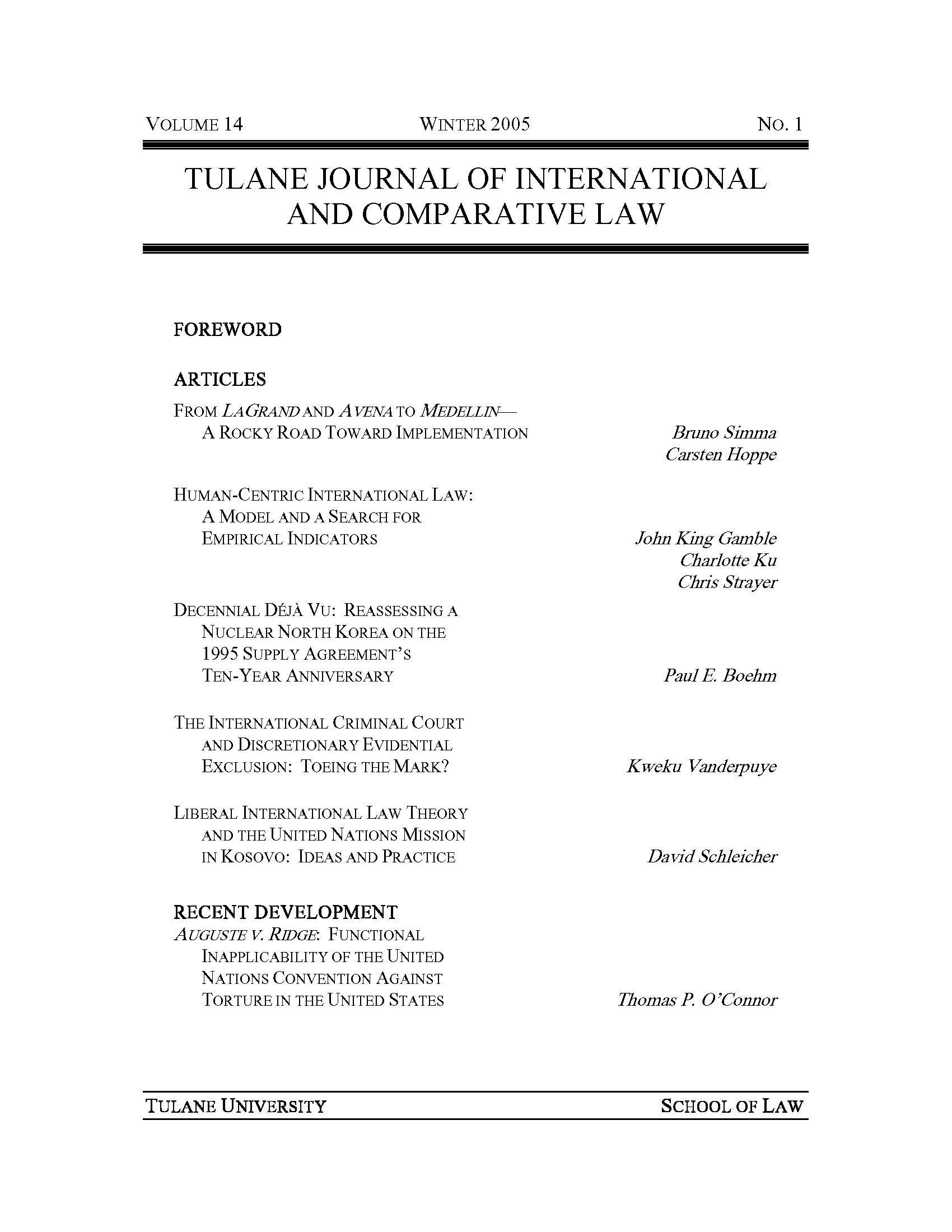The International Criminal Court and Discretionary Evidential Exclusion: Toeing the Mark?
Abstract
This Article examines the use of the exclusionary rule in Canada, the United States, and
England in the context of critically evaluating the discretionary standard of admissibility
concerning illegally obtained evidence under article 69(7) of the International Criminal Court.
Considered also are the principal justifications advanced in these jurisdictions in support of an
exclusionary sanction and the reasons for its attenuation. The Article concludes that the application
of a nondiscretionary standard in an international milieu brings to bear two distinct and significant
advantages over the existing statutory framework. First, such a standard has a greater degree of
uniformity and predictability in determining questions of evidentiary admissibility; second, it more
clearly defines and advances the underlying substantive rights toward which the exclusionary
provision under the statute is directed.
